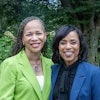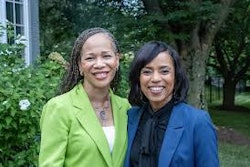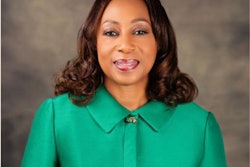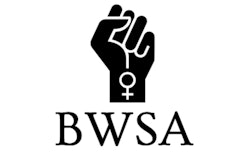W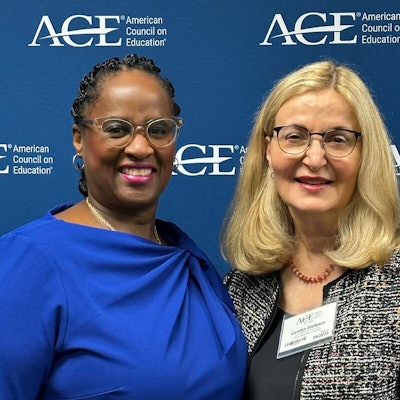 Kim Lee and Dr. Carolyn Stefanco
Kim Lee and Dr. Carolyn Stefanco
Today, the percentage stands at nearly 33%, marking a significant but measured progress in the landscape of academic leadership. This increase, while notable, also highlights the persistent challenges that remain in achieving true gender equity at the highest levels of academia.
Kim Lee, director of community strategy and engagement at ACE, says the increase reflects the “heightened awareness” the initiative created regarding “qualified women who are prepared to assume leadership roles in the executive suite, including the presidency.” The initiative’s impact, she notes, has been particularly evident in creating networks and support systems that help women navigate the complex path to leadership positions.
Accolades for the Moving the Needle campaign are not hard to find among women who’ve ascended to the highest echelon of the academy since the ACE-led initiative began in 2009. The program’s comprehensive approach, combining mentorship, networking opportunities, and leadership development, has created a robust pipeline for women aspiring to top positions in higher education.
Success stories
Among the initiative’s success stories is Dr. Shanna L. Jackson, who was appointed president at Nashville State Community College in 2018. Jackson’s journey exemplifies the power of structured support systems in advancing women’s leadership. She gained much of her knowledge of Moving the Needle while attending ACE Women’s Network meetings as a representative of Tennessee for several years in the 2010s. The network – a national system made up of smaller networks in 46 states – is the specific ACE entity behind the initiative.
“I believe initiatives like Moving the Needle – that brought both awareness of the disparities but also support for women – were key to the increase,” says Jackson in an interview with Diverse. “As someone who aspired to the Presidency and achieved it during this time period, I benefited from women leaders who were willing to share their pathway and the challenges they faced.”
The importance of practical experience and opportunities, Jackson emphasizes, cannot be overstated. While mentoring provides valuable guidance, she argues that women in higher education need presidents who can create and provide concrete opportunities that prepare them for the presidency. This was her experience at various institutions where she worked before becoming a president herself.
